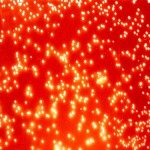Link to Pubmed [PMID] – 32005732
Link to DOI – e02711-1910.1128/AEM.02711-19
Appl Environ Microbiol 2020 03; 86(7):
Klebsiella pneumoniae is of growing public health concern due to the emergence of strains that are multidrug resistant, virulent, or both. Taxonomically, the K. pneumoniae complex (“Kp”) includes seven phylogroups, with Kp1 (K. pneumoniae sensu stricto) being medically prominent. Kp can be present in environmental sources such as soils and vegetation, which could act as reservoirs of animal and human infections. However, the current lack of screening methods to detect Kp in complex matrices limits research on Kp ecology. Here, we analyzed 1,001 genome sequences and found that existing molecular detection targets lack specificity for Kp. A novel real-time PCR method, the ZKIR (zur-khe intergenic region) assay, was developed and used to detect Kp in 96 environmental samples. The results were compared to a culture-based method using Simmons citrate agar with 1% inositol medium coupled to matrix-assisted laser desorption ionization-time of flight mass spectrometry identification. Whole-genome sequencing of environmental Kp was performed. The ZKIR assay was positive for the 48 tested Kp reference strains, whereas 88 non-Kp strains were negative. The limit of detection of Kp in spiked soil microcosms was 1.5 × 10-1 CFU g-1 after enrichment for 24 h in lysogeny broth supplemented with ampicillin, and it was 1.5 × 103 to 1.5 × 104 CFU g-1 directly after soil DNA extraction. The ZKIR assay was more sensitive than the culture method. Kp was detected in 43% of environmental samples. Genomic analysis of the isolates revealed a predominance of phylogroups Kp1 (65%) and Kp3 (32%), a high genetic diversity (23 multilocus sequence types), a quasi-absence of antibiotic resistance or virulence genes, and a high frequency (50%) of O-antigen type 3. This study shows that the ZKIR assay is an accurate, specific, and sensitive novel method to detect the presence of Kp in complex matrices and indicates that Kp isolates from environmental samples differ from clinical isolates.IMPORTANCE The Klebsiella pneumoniae species complex Kp includes human and animal pathogens, some of which are emerging as hypervirulent and/or antibiotic-resistant strains. These pathogens are diverse and classified into seven phylogroups, which may differ in their reservoirs and epidemiology. Proper management of this public health hazard requires a better understanding of Kp ecology and routes of transmission to humans. So far, detection of these microorganisms in complex matrices such as food or the environment has been difficult due to a lack of accurate and sensitive methods. Here, we describe a novel method based on real-time PCR which enables detection of all Kp phylogroups with high sensitivity and specificity. We used this method to detect Kp isolates from environmental samples, and we show based on genomic sequencing that they differ in antimicrobial resistance and virulence gene content from human clinical Kp isolates. The ZKIR PCR assay will enable rapid screening of multiple samples for Kp presence and will thereby facilitate tracking the dispersal patterns of these pathogenic strains across environmental, food, animal and human sources.


